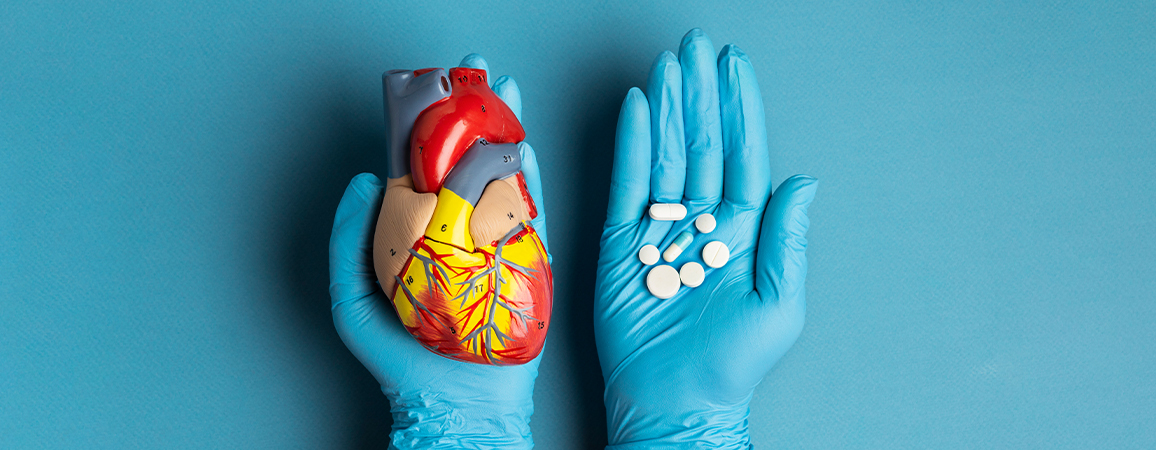
When it comes to matters of the heart, there’s no room for complacency. Cardiovascular disease is a formidable adversary that affects millions worldwide. The good news is that you have more control over your heart health than you might think. In this article, we’ll explore the powerful impact of cardiac rehabilitation and lifestyle choices on your cardiovascular system. So, let’s dive in and discover how you can take charge of your heart’s well-being.
What is Cardiac rehabilitation and how Can It Save Your Heart?
Cardiac rehabilitation might sound like a complex term, but in essence, it’s a structured program designed to help individuals recover from heart-related issues. It’s like a personalized fitness plan for your heart, focusing on exercise, education, and emotional support. The aim? To improve your heart’s overall condition and enhance your quality of life.
What Makes It Your Heart’s Best Ally?
One of the core components of cardiac rehabilitation is exercise. Regular physical activity is like a magic potion for your heart. It strengthens your heart muscle, lowers blood pressure, and improves circulation. Even a simple brisk walk can work wonders. The best part? You don’t need to be an athlete to reap the benefits. A little effort goes a long way in safeguarding your heart.
What Do You Need to Know About Your Heart?
Understanding your heart and how to care for it is paramount. Cardiac rehabilitation programs provide you with valuable knowledge about heart-healthy diets, medications, and stress management techniques. This knowledge empowers you to make informed decisions about your lifestyle, putting you in the driver’s seat of your heart health journey.
How Can It Heal Your Heart?
Heart issues often come with emotional baggage. Anxiety, depression, and fear can be overwhelming. Cardiac rehabilitation recognizes this and offers emotional support. Group therapy sessions and counseling can help you cope with the psychological aspects of heart disease. Remember, a healthy mind is just as vital as a healthy heart.
Are You Protecting or Endangering Your Heart?
Now, let’s shift gears and talk about lifestyle choices. Your daily habits play a pivotal role in determining your cardiovascular health. You hold the cards to either protect or endanger your heart. Let’s explore some lifestyle factors that can make or break your heart’s well-being.
What Should You Eat to Fuel Your Heart?
Your heart deserves premium fuel. A diet rich in fruits, vegetables, whole grains, and lean proteins is the way to go. Minimize processed foods, excessive salt, and sugar. Consider the Mediterranean diet, renowned for its heart-boosting benefits. Remember, your heart is what you eat.
How Can You Thrive Through Movement?
Exercise isn’t just for cardiac rehab; it’s a lifelong commitment. Aim for at least 150 minutes of moderate-intensity exercise per week. Find activities you enjoy, whether it’s dancing, swimming, or gardening. Exercise isn’t a chore when you make it part of your lifestyle.
Can You Stub Out the Heart’s Arch-Nemesis?
Smoking is the arch-nemesis of your heart. It damages blood vessels, raises blood pressure, and reduces oxygen in your blood. Quitting smoking is the single best thing you can do for your heart. Seek support from a smoking cessation program if needed.
Where Can You Find Your Zen?
Stress is a silent assassin that can harm your heart. Incorporate stress-reduction techniques into your routine, such as meditation, deep breathing, or yoga. Managing stress is not a luxury; it’s a necessity for a healthy heart.
What’s the Key to Heart-Healthy Drinking?
While moderate alcohol consumption can have some heart benefits, excessive drinking can harm your heart and overall health. Stick to recommended limits, which are one drink per day for women and up to two drinks per day for men.
How Does It Recharge Your Heart?
Sleep is when your body heals and rejuvenates, including your heart. Aim for 7-9 hours of quality sleep each night. Poor sleep can contribute to heart issues, so prioritize a good night’s rest.
Regular Check-ups: Stay Informed
Don’t skip those routine check-ups with your healthcare provider. Regular screenings can detect risk factors like high blood pressure and cholesterol levels. Early detection can prevent heart problems before they escalate.
How Can It Build Your Heart’s Support System?
Surround yourself with people who support your heart-healthy choices. Share your journey with friends and family. Consider joining a fitness class or support group to stay motivated.
Is Your Heart’s Destiny in Your Hands?
Your heart’s destiny is largely in your hands. Cardiac rehabilitation offers a structured path to recovery, while lifestyle choices are the daily decisions that shape your heart’s future. The synergy between the two can be a game-changer in your battle against cardiovascular disease.

Remember, it’s never too late to start caring for your heart. Embrace cardiac rehabilitation if you’re on the road to recovery, and adopt heart-healthy lifestyle choices to prevent future issues. Your heart is worth the effort, and the rewards are a longer, healthier life filled with vitality and joy. So, take charge of your heart health today, and let your heart beat strong for many tomorrows to come.









